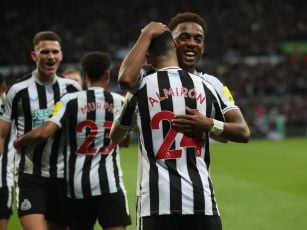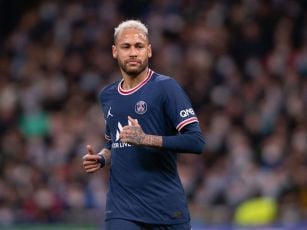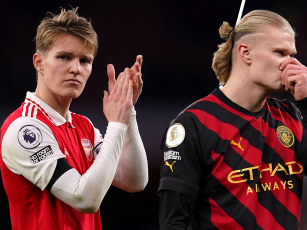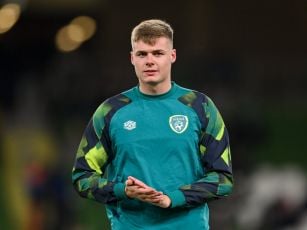Hindsight is a wonderful thing, isn't it?
Back on the night of September 13th 2008, things weren't all too rosy for Pep Guardiola at Barcelona.
Granted it was only two games into his first season in charge but they had followed up a 1-0 loss to Numancia with a 1-1 draw at Racing Santander.
Not an ideal start by any stretch of the imagination. But as the touching anecdote Guardiola shared about Andres Iniesta popping his head in the manager's door and telling him to keep doing what he was doing, it was clear that the squad believed in his methods.
On November 29th of that year, I was in Sevilla to watch the home side get taken apart 3-0 by Barcelona with Samuel Eto'o and Lionel Messi getting the goals.
In between the Racing and Sevilla games, they had won nine times and drawn once to build towards an end of season when they would claim six trophies in an unforgettable campaign.
Repeating that with Manchester City will be near impossible given the toughness of the Premier League but that the speed with which his current squad has adopted his principles is truly impressive.
Watching his City side in the 2-1 derby win over Manchester United, not only was their speed of thought in possession impressive but their tactical targeting of weaknesses was equally evident.

While the broad perception of Guardiola is a manager who put possession above everything, there is far more there in terms of opposition scouting.
For example, the oft-mentioned tactical switch while in charge of Bayern Munich against Borussia Dortmund where he stuck defensive midfielder/centre-back Javi Martinez in an attacking midfield role to receive long passes forward over the opposition press is an example of that.
It was significant how often City targeted the space behind full-backs Man United Antonio Valencia and Luke Shaw, sometimes with a curved ball from one side to the other, in the knowledge that the duo may attack well but are not always well positioned.
The United failure to track the runs of Kevin De Bruyne, who would have had a hat-trick but for the goal-posts, also played into City's hands.
Significantly, the inverted full-backs tactic witnessed - and much talked about - after their opening fixture of the season has not been seen too often since and Aleksander Kolarov, for example, was restored to his more natural left-back role after spells as a left-side centre-back this season.
On one hand, some of the elements that Guardiola inherited were already in place before the season began, namely the fact that they were already a side used to being dominant in possession.
In addition, the signing of Raheem Sterling for example was flagged as one that was made last year in consultation with the new manager.
He has also refused to shoe-horn players that do not fit his vision, so players on big wages like Yaya Toure have been frozen out and the likes of Joe Hart and Samir Nasri loaned out.
Of course, City haven't been fully convincing throughout their first four games this season and teething problems are likely to arise from time to time as players continue to get used to his methods, but the manager must be encouraged by the progress so far, particularly in a big game derby game - albeit against a Man United side also adapting to new methods.
Download the brand new OffTheBall App in the Play Store & App Store right now! We've got you covered!
Subscribe to OffTheBall's YouTube channel for more videos, like us on Facebook or follow us on Twitter for the latest sporting news and content.








